- Home
- Julie Smith
Huckleberry Fiend Page 9
Huckleberry Fiend Read online
Page 9
She showed us out herself, not even calling a servant or Rosamund. She pumped Sardis’s hand: “So nice to meet you in person, my dear. And you too, Mr. Harper. You’re so very sympatico— the sort of people who truly love and appreciate books.”
By now, Rosamund had put her Harley away, leaving the yard as pristine as a mountain meadow. “I wish,” said Sardis, “she’d taken us for a turn around the grounds.”
“Maybe she didn’t think we truly love and appreciate flowers.”
“Hey, something’s funny about the car.”
I bent down. “You’re not kidding. Two flats on this side.” Sardis walked to the other. “And two over here.”
“Oh, God. If it were a dark and stormy night, I’d be awfully nervous.”
“Even then we could just call AAA.”
“We couldn’t, actually.”
“You’re not a member?”
“Canceled for nonpayment.”
“Damn! Why didn’t we bring my car? I’ve got one of those little compressors you plug into your cigarette lighter.”
“Maybe Rosamund has one— she looks the handy type. Or we could just call a cab.”
“Let’s fling ourselves on the duchess’s mercy.”
This time the door was opened by a uniformed maid— unfortunately one who spoke no English. After much sign language, we wrote our names— Williams and Harper— for her to show to the chatelaine. Once again, we were ushered into the library. Pamela was sitting at her desk, now wearing a pair of pink-tinted aviator glasses. In front of her, open to the picture on the back flap, was a copy of Vandal in Bohemia by Paul Mcdonald.
“Miss Williams and Mr. Harper. I didn’t expect you again so soon.” She looked pointedly from the picture to me.
“Really? You seem to have taken pains to keep us here.”
“I beg your pardon?”
“We’re easy— you could have just offered tea. You didn’t have to have your daughter let the air out of our tires.”
“Rosamund? Rosamund did what?”
“Rosamund or someone let the air out of our tires.”
“How awful! I assure you it isn’t my doing. I am glad you’re back, though. Perhaps you’ll sign my book.”
“Just what are you up to, Mrs. Temby?”
“Nothing! How could I be? We were together all the time— I could scarcely have given any orders, could I? These things happen in a city. Why are you so suspicious of me?”
“You knew who I was.”
“I didn’t at first, exactly. I just thought you looked familiar. And then it began to dawn on me. I have an excellent memory for faces, you see— particularly those I like.” She took off the glasses. “Actually, I’ve been perishing to look at the picture for the last half-hour. I must say, Mr. Mcdonald—”
“Paul.”
“When I was a struggling author, I did typing to make ends meet. But you seem to have come up with a more innovative solution. I hope you were careful making those copies, incidentally. You can damage the delicate pages that way.”
“This isn’t actually my show. I’m here because Miss Williams wanted company this afternoon.”
“It’s still Miss Williams, is it?”
“Sarah,” said Sardis.
“Sarah.” She crossed her legs slowly and elegantly. “You wanted company, did you? Did you think I’d bite you, my dear?”
Sardis smiled. “I’m representing someone who’s trying to sell a property worth a small fortune. People get nasty over things like that.”
Temby raised a perfectly shaped and colored eyebrow. “I thought you told me you were acting alone.”
Panic flickered briefly on Sardis’s face. The real Sarah Williams— Beverly— had contacted Temby, and we had no way of knowing what she’d told her. But Sardis composed herself quickly. “Did I say that? I guess I forgot.”
“Do you know what I think, my dear? I don’t think you’re Sarah Williams at all. I remember voices almost as well as faces.”
“One can’t be recognized on the telephone. For her own reasons, she didn’t want to come in person.”
“It’s someone I know, then.”
“Perhaps.”
“Tell me— is there something illegal about all this?”
“Do you care?” Sardis spoke with the practiced cool of a master criminal. I wondered briefly if she’d been leading a double life.
Temby considered. “Not really,” she said after a time, “so long as the manuscript itself is authentic.”
“We’re satisfied that it is.”
“I’ll have to have a look at the whole thing, of course.”
“When the time comes.”
“I think we understand each other.”
I was getting more insight into Linda’s remark about collectors who didn’t bother having documents authenticated. For one thing, it was obvious Temby considered herself perfectly competent to do the authenticating. For another, in a questionable deal (like this one) it could be dangerous to take possibly stolen documents to legitimate dealers or scholars who might know their provenance. In fact, this deal was dicey indeed, since the manuscript was a major find. Absolutely no one could be trusted to keep his mouth shut about it. So if Temby had convinced herself the thing was real (and I wouldn’t blame her— I’d convinced myself), by showing no one she’d be able both to avoid the risk of discovery and to keep her expensive dream intact. I wondered just how expensive. Something over $250,000 was all we knew, but I figured she was negotiating in quarter-million-dollar increments.
“I think we should call the police,” I said. “About the tires.”
“Of course. Would you like to phone AAA as well?”
“We thought Rosamund might have one of those little lighter compressors.”
“I’ll check. Sit down, won’t you?”
She left in a cloud of perfume, returning with Rosamund, now in jeans and neat black T-shirt, hair wet from the shower. Rosamund was trailed, in turn, by a pillowy young woman whose hair was also wet. “I’ve called the police,” said Temby, “but Rosamund doesn’t seem to have the gizmo.”
Rosamund smiled and ran a hand through her wet hair. She had a charmingly coltish look about her. “Not the way Mummy’s explained it, anyway. Something about a hand pump for tires?”
“A compressor,” said Sardis. “It works on a car’s cigarette lighter. I’ve got one, but it’s at home.”
Rosamund laughed, probably at the notion of such a daintily amateur item. “Sorry. Haven’t got; I’ll be glad to run you home, though.”
“Thanks, but we have to wait for the cops.”
She laughed again. “You don’t know Piedmont. They’ll be here before we can drink our sherry— you will have one, won’t you?”
“Personally,” said Sardis, “I’d like one in each hand.”
“Good. This is my friend, Sukie. Sarah Williams and— sorry…”
“Paul Mcdonald.”
“Darling,” said the elder Temby. “Mr. Mcdonald’s a wonderful new author.” She held up my book.
“Vandal in Bohemia— how marvelous.”
“It takes place at the Bohemian Grove,” said her mother. “Jeffrey Pebbles recommended it. He’s a Bohemian, you know. Anyway, Paul, I’m such a fan—” She walked over to a large section of shelves. “—See all my mysteries? I think you’re simply splendid. In lots of ways.” She stared, locking my eyes with hers. There was no mistaking her meaning.
“Oh, Mummy, you’re so bawdy!”
“How about you, dear? You and Sukie with your wet hair.” Sukie blushed, sinking into a chair as if to hide in it.
“But this is a honeymoon,” cried Rosamund, pouring sherry all round. “You see,” she said to Sardis and me, “Sukie and I just met. We’ve been together for seventy-two whole hours now.” She took Sukie a glass, and bent to kiss her.
The cops came then, providing a welcome distraction— to one person at least. Poor Sukie looked like a person pursued by the Hound of the Baskerv
illes.
CHAPTER 10
All the way home— in Pamela Temby’s white Rolls Royce— Sukie spoke not a word, while Rosamund kept up a running stream of chatter, mostly about the joys of owning a Harley. “Sukie’s never been on one, but not to worry. We’ll make a diesel dyke of you yet— won’t we, dear?”
Sukie’s mortification notwithstanding, I couldn’t help liking Rosamund, admiring her exuberance. The truth is, I was a fan. “I suppose you think all she needs,” said Sardis later, “is a good man to straighten her out.”
“Couldn’t hurt.”
But she wouldn’t be baited. “Pah! She’s Mummyfied. As who wouldn’t be?”
“Easy on the old babe— she thinks I’m ‘simply splendid’.”
“Babe, hell! Mae West without the hourglass.”
It wasn’t the time, I figured, to tell her about the Huckleberry Fiends, so I waited till we’d retrieved my car. But luck went against me again. “Oh, hell,” said Sardis, looking at her watch, “the afternoon’s shot. Want to come up for a pre-dinner nap? Euphemistically speaking, I mean.”
“Uh, listen— I don’t think I can make dinner, after all.”
“You don’t think you can? What’s this think, Mcdonald? I thought we had a date.”
“Well, Linda McCormick—“
“Linda McCormick!”
“Hold on, hold on, it’s business. She invited me to a meeting of a Mark Twain fan club.”
“That certainly sounds important.”
“I’m hoping I might meet somebody—”
“It sounds as if you’ve already met her.” She started up the stairs.
“Sardis, come on. This is important.”
“You listen to me, Paul Mcdonald— next time you decide to waste my entire afternoon, you tell me in advance that you also intend to stand me up for dinner.” She continued the climb. At the top of the stairs she turned around and lifted an eloquent finger. “Huck you!” she shouted grandly.
I suppose that meant she thought I was a Huckleberry hound. The hell of it was, I could see her point— it would have been more honest to mention the Fiends first, not to mention better strategically. I’d have to make it up to her later. At the moment, though, I was wondering whether the Fiends would feed me.
Linda was waiting outside when I arrived at seven. “My car or yours?”
“Mine. I’m parked illegally. Where are we going?”
She gave me an address in North Berkeley. “We always meet at someone’s house.”
“What happens at these things, anyway?”
“Oh, there’s a buffet and social hour. Then someone gives a talk.”
“Who’s speaking tonight?”
“Me.”
“How great! What’s the subject?”
“The biggie.”
“I beg your pardon?”
“Can’t you guess what it is?”
“No. I mean— it couldn’t be. Could it?”
“I don’t know. Try me.”
“The missing manuscript?”
“What missing manuscript?”
“I guess that’s not it.”
“Why don’t you mull it awhile. Maybe it’ll come to you. By the way, how do you want to be introduced?”
“I’ve thought about that. Joe Harper, maybe? Ben Rogers?”
“Come on.”
“Say, have you ever heard of a woman called Sarah Williams?”
“Who?”
“Sarah Mary Williams.”
“It sounds familiar, but I can’t quite place it.”
I guess even scholars have lapses. I said, going back to her question, “I think I’d better be myself. That’s the advice my mother used to give me.”
“Do you want to stand up and make a pitch for information? Or just talk to people?”
“I think I’d like to go about it informally, but I’ll let you know if I change my mind.”
We ended up at the home of one of her fellow editors, a typical Berkeley apartment full of the ubiquitous white sofas, Dhurri rugs, tasteful plants, and Japanese prints that replaced India-print bedspreads and pillows on the floor when hip yielded to yup.
Instead of the spaghetti and jug wine of old, there was goat cheese, sun-dried tomatoes, charcoal-grilled vegetables, pasta salad, marinated string beans, salmon mousse, mussels on the half shell, Cajun popcorn, and, specially chosen for summer sipping, an elegant selection of blush wines. Smoking, needless to say, would have been an unpardonable breach of decorum.
Some of the Fiends, however, hadn’t kept up with the times. There was one man in a ponytail and two or three wore scraggly beards and jeans. One of the women actually had long, straight, center-parted hair. But I supposed these people were mostly grad students, professors, erudite carpenters or longshoremen, and maverick psychologists. One couldn’t expect such folk, no matter what other fads they followed, to have the fashion sense of hairdressers, hot-tub salesmen, and chefs from chic restaurants.
Over the crawfish, I fell easily into conversation with the longhair. His ponytail was graying and a little greasy, his shoulders stooped, his spectacles mended with tape. Automatically, I checked his pocket for a nerd-pack, and my instincts weren’t far off. He was Dan Dupart, software designer. I told him I was Paul Mcdonald, mystery writer and friend of Linda McCormick.
“Oh, man,” he said, “Twain must be one of your idols, then.”
“Because of Linda?”
“No, because he was such a great mystery writer.”
“You think so?”
“Oh, sure. Tom Sawyer, Detective, Double-Barrelled Detective Story, and, of course, my personal favorite, The Stolen White Elephant.”
I was uncomfortable. “I like Pudd’nhead Wilson myself.”
“But that’s not really a mystery.”
“It’s got more crime per paragraph than anything Hammett ever wrote, probably including Red Harvest. And it’s got fingerprints— maybe the first use of fingerprints in an American story.” (I had no idea whether this was true, but anything to throw him off the track.) “Then there’s ‘The Man That Corrupted Hadleyburg.’ What an evil, evil little story.”
“But it’s not—”
“It’s certainly suspense. I’d be glad to see it in any criminous anthology. And Tom Sawyer itself— that’s got a murder in it.”
“But what about the detective stories? Is Inspector Blunt the greatest or what?”
“Well— I— uh—” I was nearly choking on my mousse. But manfully, I spat it out: “I never cared much for him, actually.”
“What? You don’t like The Stolen White Elephant? I thought I’d die.” He fell forward laughing at the mere thought.
“I just didn’t find it a very good parody.”
That sobered him. “You didn’t?”
What was this? Had I criticized Mark Twain and got away with it? Anyway, lightning hadn’t struck me, and Dan Dupart hadn’t kicked my teeth in. “Not really,” I ventured.
Dupart seemed to be thinking. “Maybe that’s what Justin Kaplan meant.”
“Twain’s biographer?”
“You know Twain criticized Conan Doyle for what he called ‘cheap and ineffectual ingenuities.’ And Kaplan said he was envious.”
Vindication of sorts! And from no less a scholar than Twain’s biographer. I relaxed a little, even venturing to drift into a conversation about Olivia Langdon, Clemens’s wife, his “dear little gravity,” who had censored and emasculated him, transforming him from adventurer to petit bourgeois. The only problem was, I was way out of my depth, according to Professor Marcia Dunlap, a hundred-and-one pounds of fun who seemed to have packed several libraries under the brandy-colored mop on her head.
“Perhaps you recall,” she prompted, “that Clemens fell in love with her image— a picture he saw six months before he ever met her. That’s the important thing to remember about the relationship.”
“He didn’t marry a picture.”
“But it’s hardly as if he fell under the spe
ll of la belle dame sans merci. On the contrary, he camped on her doorstep till she gave in.”
“Still, she made him take the temperance pledge and become a Christian.”
“Thereby setting himself up beautifully to spend the rest of his life playing the role of the henpecked husband. He enjoyed it, Paul, you see? It was another way of saying, ‘It didn’t happen on my shift.’ Despite his carryings-on, he actually had most things his way. In fact, Livy ended up drinking beer every night and becoming an unbeliever. While he not only never became a Christian in any true sense, but continued drinking most enthusiastically.”
“You can’t get around the fact that she censored his work.”
“If ever a man begged to be ‘censored,’ it was our Mr. Clemens. At his behest, Bret Harte ‘censored’ him, and so did William Dean Howells, and so did Mary Fairbanks before he even met Livy. Later on, so did his publisher, so did Paine (who did considerably more than edit) and so did De Voto. Charles Neider’s my favorite. He simply took it upon himself to reorganize Twain’s Autobiography, after casually dismissing the author’s notion of stream-of-consciousness as ‘an extraordinary idea.’ For that matter, any editor ‘censors’ any writer.”
Cheered by her mention of Bernard De Voto, who was no admirer of Livy’s, I remembered another scholar, Van Wyck Brooks, who agreed with De Voto on Mrs. Clemens but on virtually nothing else. “Oh, come now, Marcia— about the only thing most Twain scholars actually agree on is the stifling influence of her Victorian ideas.”
“I’m afraid, Paul, you’re a little out of date. Today, we’re taking Twain’s own portrayal of Livy— as suppressor of his artistic genius— for the self-serving drivel it was. As a humorist, he himself was extremely careful to choose ‘safe’ subjects that wouldn’t offend— from the pious pilgrims of The Innocents Abroad to slavery in Huckleberry Finn. Yet he persisted in portraying himself as the sensitive and suppressed artist. Perhaps you recall what he told Paine on his seventy-third birthday.”
“I can’t say that I do.”
“He said his best book was Joan of Arc.”
“I beg your pardon?”
“Joan of Arc.”
This was embarrassing. “I didn’t even know he wrote a book by that title.”

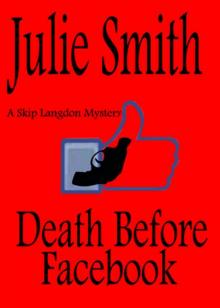 Death Before Facebook (Skip Langdon #4) (Skip Langdon Mystery) (The Skip Langdon Series)
Death Before Facebook (Skip Langdon #4) (Skip Langdon Mystery) (The Skip Langdon Series) P.I. On A Hot Tin Roof
P.I. On A Hot Tin Roof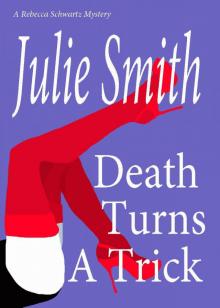 Death Turns A Trick (Rebecca Schwartz #1) (A Rebecca Schwartz Mystery) (The Rebecca Schwartz Series)
Death Turns A Trick (Rebecca Schwartz #1) (A Rebecca Schwartz Mystery) (The Rebecca Schwartz Series)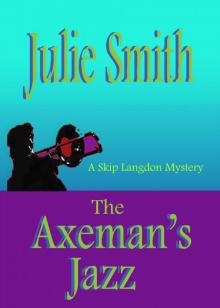 The Axeman's Jazz (Skip Langdon Mystery Series #2) (The Skip Langdon Series)
The Axeman's Jazz (Skip Langdon Mystery Series #2) (The Skip Langdon Series)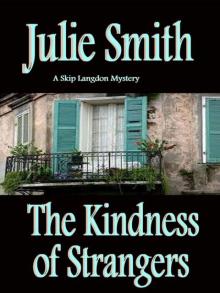 The Kindness of Strangers (Skip Langdon Mystery #6) (The Skip Langdon Series)
The Kindness of Strangers (Skip Langdon Mystery #6) (The Skip Langdon Series)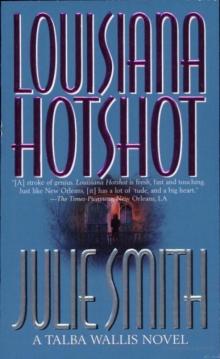 Louisiana Hotshot
Louisiana Hotshot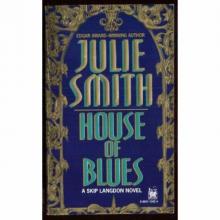 House of Blues
House of Blues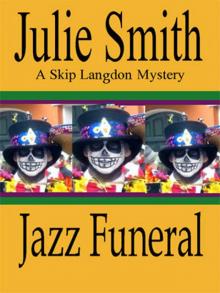 Jazz Funeral (Skip Langdon #3) (Skip Langdon Mystery) (The Skip Langdon Series)
Jazz Funeral (Skip Langdon #3) (Skip Langdon Mystery) (The Skip Langdon Series)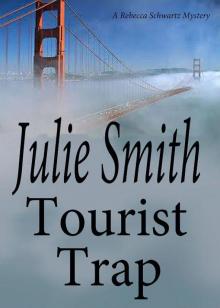 Tourist Trap (Rebecca Schwartz #3) (A Rebecca Schwartz Mystery) (The Rebecca Schwartz Series)
Tourist Trap (Rebecca Schwartz #3) (A Rebecca Schwartz Mystery) (The Rebecca Schwartz Series)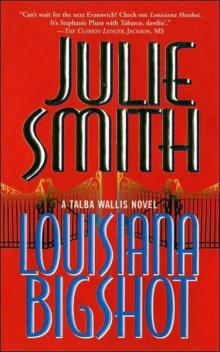 Louisiana Bigshot
Louisiana Bigshot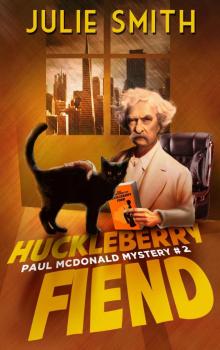 Huckleberry Fiend
Huckleberry Fiend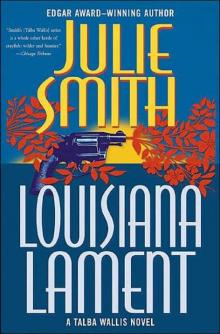 Louisiana Lament
Louisiana Lament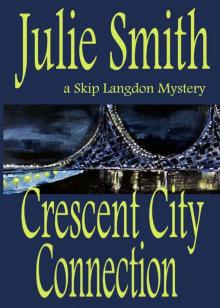 Crescent City Connection (Skip Langdon Mystery #7) (The Skip Langdon Series)
Crescent City Connection (Skip Langdon Mystery #7) (The Skip Langdon Series)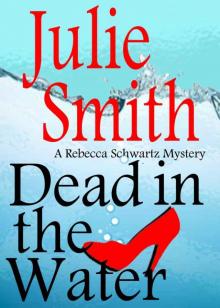 Dead In The Water (Rebecca Schwartz Mystery #4) (The Rebecca Schwartz Series)
Dead In The Water (Rebecca Schwartz Mystery #4) (The Rebecca Schwartz Series)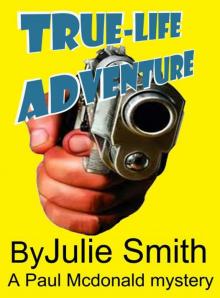 True-Life Adventure
True-Life Adventure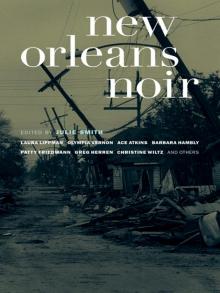 New Orleans Noir
New Orleans Noir